Table of Contents
If you’re aiming to secure a TGT post through the Railway Recruitment Board (RRB), you’ll need to clear the RRB Teacher Exam, one of the most competitive tests for teaching aspirants. This exam evaluates the knowledge and teaching abilities of candidates applying for both Post Graduate Teacher (PGT) and Trained Graduate Teacher (TGT) roles. The 2025 exam pattern places special emphasis on education-related subjects, ensuring candidates gain a strong grip on both theoretical concepts and practical applications. In this article, we break down the RRB Teacher TGT education questions with explanations to guide candidates in their preparation journey.
RRB Teacher TGT Education: Overview
The Railway Teacher Vacancy 2025 exam for Trained Graduate Teachers (TGT) is structured to test candidates in three core areas: Education, Psychology of Learning and Teaching, and Curriculum and Instruction. The syllabus is carefully designed to evaluate both theoretical understanding and practical teaching strategies. To give you a clearer picture, here’s an outline of the major topics included in the exam.
| Section | Number of Questions | Key Topics Covered |
|---|---|---|
| Education | 22-28 | Philosophy of Education, Sociology in Education, Democracy in Education, Human Values in Teaching |
| Psychology of Learner & Teaching | 13-18 | Educational Psychology, Growth & Development Stages, Theories of Intelligence, Motivation, Exceptional Children |
| Curriculum and Instruction | 8-12 | Curriculum Planning, Instructional Methods, Teaching Competencies |
Download RRB Teacher TGT Education Questions with Detailed Explanations PDF
Here we have provided RRB Teacher TGT Education Questions with Detailed Explanations PDF in below. Candidate can download these PDFs in Hindi and English with covering the key topics, along with in-depth explanations of the answers.
Download RRB Teacher TGT Education Questions with Detailed Explanations PDF
RRB Teacher TGT Education Questions
Q1. All formative assessment is_________
(a) assessment of learning
(b) assessment while learning
(c) assessment as learning
(d) assessment for learning
Q2. How should students handle disagreements or conflicts with their peers in the classroom?
(a) Engaging in physical confrontations to resolve the issue.
(b) Seeking mediation from the teacher or a trusted adult.
(c) Ignoring the conflict and avoiding any communication.
(d) Spreading rumors and gossiping about the other person.
Q3. ‘Learning about self and wisdom of life’, is a definition given to
(a) Inclusive education
(b) Value education
(c) Basic skills education
(d) Integrated education
Q4. Encouraging students of mixed abilities to work together by promoting small group or whole class activities is a feature of-
(a) Cooperative learning
(b) Enquiry-based instruction
(c) Visualisation
(d) Behaviour management
Q5. Learning is a process that occupies an important role in moulding the structure of our
(a) Personality
(b) Behaviour
(c) Both
(d) Only behaviour
Q6. The word ‘Psychology’ is derived from _________ words.
(a) Latin
(b) Greek
(c) Spanish
(d) None
Q7. Who defined “Psychology as the science of behaviour and experience”?
(a) B.F. Skinner
(b) Jean Piaget
(c) Lev Vygotsky
(d) Albert Bandura
Q8. According to Sigmund Freud’s psychoanalytic theory, which component of personality operates on the pleasure principle and seeks immediate gratification?
(a) Id
(b) Ego
(c) Superego
(d) Libido
Q9. Which one of the following is not associated with social development in childhood?
(a) gang formation
(b) formation of sex-groups
(c) the desire for social acceptance
(d) attraction towards the opposite sex
Q10. Shorya is a renowned dancer. So, he must possess ____________ intelligence.
(a) linguistic intelligence
(b) body-kinesthetic intelligence
(c) musical intelligence
(d) inter-personal intelligence
Solutions
S1. Ans.(d)
S2. Ans.(b)
S3. Ans.(b)
S4. Ans.(a)
S5. Ans.(c)
S6. Ans.(b)
S7. Ans.(a)
S8. Ans.(a)
S9. Ans.(d)
S10. Ans.(b)
Uses of RRB Teacher TGT Education Questions
RRB Teacher TGT Education questions are invaluable tools for exam preparation. Here are some key uses:
- Self-Assessment: Practice questions help you gauge your current level of preparation and identify areas where you need to improve.
- Targeted Study: By analyzing your performance on practice questions, you can focus your study efforts on the topics that are most challenging for you.
- Time Management Practice: Working through practice questions under timed conditions helps you develop effective time management strategies for the actual exam.
- Conceptual Clarity: Detailed explanations accompanying the questions help you understand the underlying concepts more thoroughly.
- Exam Familiarization: Regular practice with exam-style questions reduces test anxiety and improves your performance on the day of the exam.

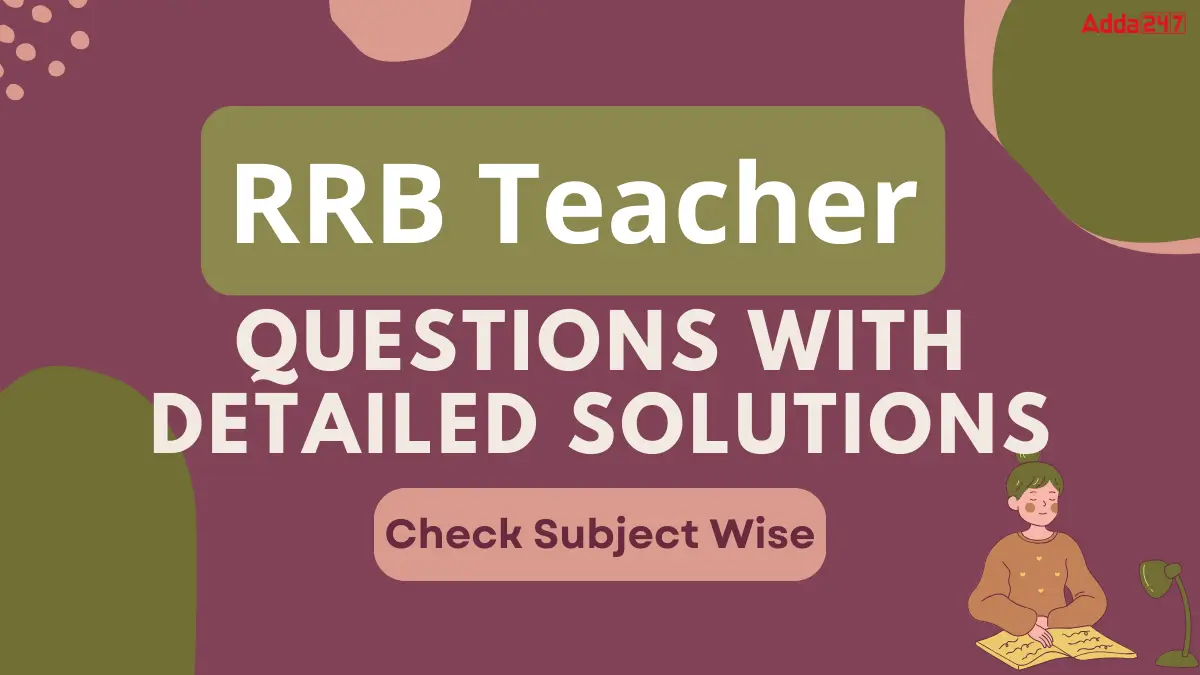
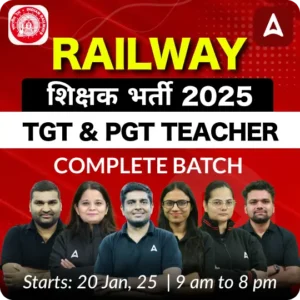

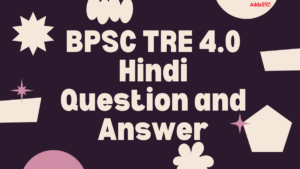 BPSC TRE 4.0 Hindi Question and Answer, ...
BPSC TRE 4.0 Hindi Question and Answer, ...
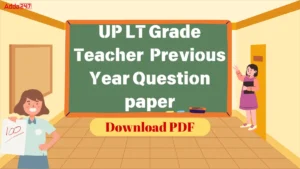 UP LT Grade Teacher Previous Year Questi...
UP LT Grade Teacher Previous Year Questi...
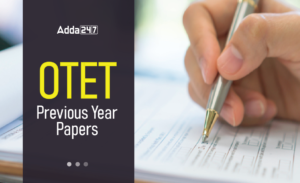 OTET Previous Year Question Papers, Down...
OTET Previous Year Question Papers, Down...













